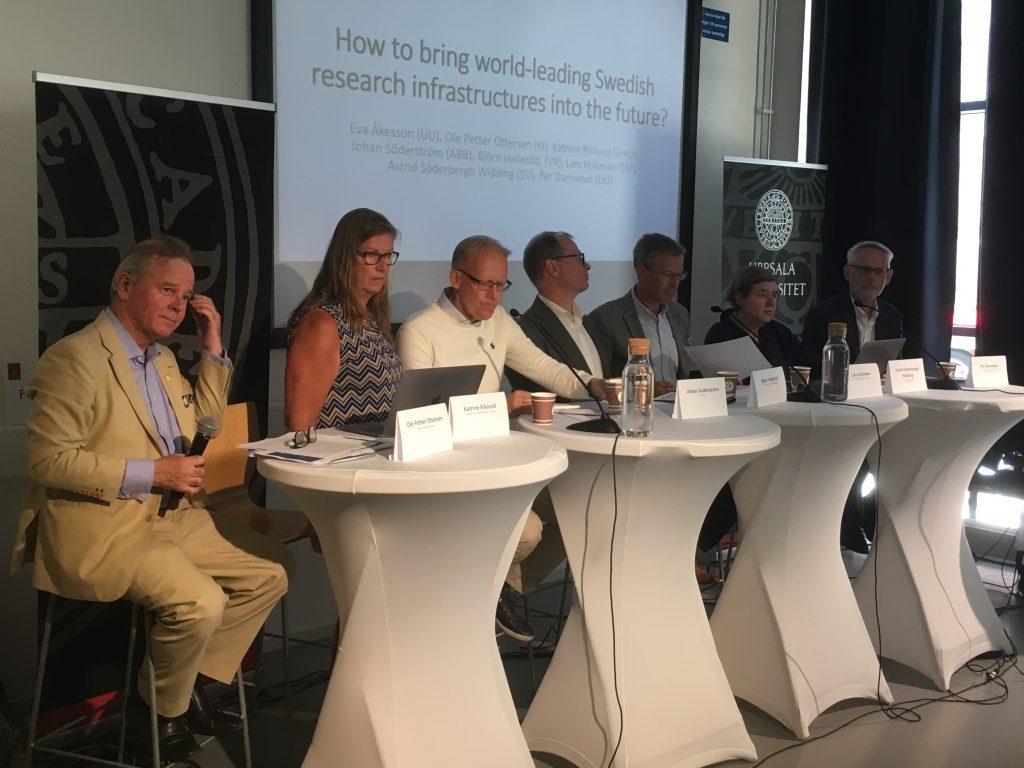During Almedalen Week, guest bloggers will write for the Vice-Chancellor’s Blog.
Guest blogger: Margaretha Andersson
Today a debate was held on “How to bring world-leading Swedish research infrastructures into the future”. The seminar involved a large number of institutions – the universities of Lund, Gothenburg, Stockholm, Umeå, Uppsala and Linköping, Karolinska Institutet, the Swedish University of Agricultural Sciences, KTH Royal Institute of Technology and Chalmers University of Technology. Eva Åkesson, Vice-Chancellor of Uppsala University, was the moderator.
Sweden invests heavily in research infrastructure. This was reflected in the great interest. The seminar was full. The discussion focused on how we can move forward and prepare for the future by investing in powerful research platforms. Development is rapid and regular new investments are needed to stay at the forefront. This requires national coordination and a strategy based on the needs of many different disciplines.
Representatives of the largest ventures – ESS, MAX IV, SciLifeLab and SNIC – were united in emphasising the necessity of common priorities and a national strategy. At the same time, expectations exist throughout the country, with the business sector and health/medical care sector, for example, showing a desire to participate and gain access to the results emerging from major infrastructures. Digitisation is leading to new possibilities and offers novel tools to disciplines that have not traditionally been users of experimental infrastructure. Along with the exciting opportunities now arising to ask completely new questions, ethical issues are gaining in importance, including the processing of sensitive personal data, for example.
The Swedish Research Council has a coordinating role and a central role in funding and in international participation in important cooperative projects. This role needs to be reinforced, as the system faces challenges in the form of the current weakness of the Swedish krona, strategy issues, the division of roles and priorities. Funding bodies, higher education institutions, the business sector and decision-makers need to coordinate to ensure the investments made have a long-term perspective.

There was great unanimity on now taking responsibility together, nationally. The universities, the Association of Swedish Higher Education Institutions, the Swedish Research Council and industry. Resources will be widely available throughout the country and Sweden’s competitiveness as a knowledge nation must be upheld by:
- Resources for the Swedish Research Council to safeguard investments that have already been made;
- A regulatory framework that allows Swedish researchers to participate fully in international cooperation and initiatives;
- Index-linked resources for higher education, since education and infrastructure are interconnected;
- Enhanced national coordination with resources for initiatives in digitisation, data-driven research and Open Science;
- A long-term and comprehensive vision to strengthen knowledge society value chains throughout the country. Free research is an indispensable factor for renewal. Increased dialogue, coordination and prioritisation are required!
